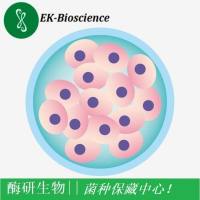Chromosome Substitution Strains: A New Way to Study Genetically Complex Traits
互联网
268
Many biological traits and heritable diseases are multifactorial, involving combinations of genetic variants and environmental factors. To dissect the genetic basis for these traits and to characterize their functional consequences, mouse models are widely used, not only because of their genetic and physiological similarity to humans, but also because an extraordinary variety of genetic resources enable rigorous functional studies. Chromosome substitution strains (CSSs) are a powerful complement to existing resources for studying multigenic traits. By partitioning the genome into a panel of new inbred strains with single chromosome substitutions, one strain for each of the autosomes, the X and Y chromosome, and the mitochondria, unique experimental designs and considerable statistical power are possible. Multigenic trait genes (or quantitative trait loci [QTLs]) with weak effects are easily detected, linkage and congenic crosses can be quickly made, gene interactions are readily characterized, and discovery of QTLs is greatly accelerated. Several published studies demonstrate the considerable utility of these strains and new applications for CSSs continue to be discovered.









